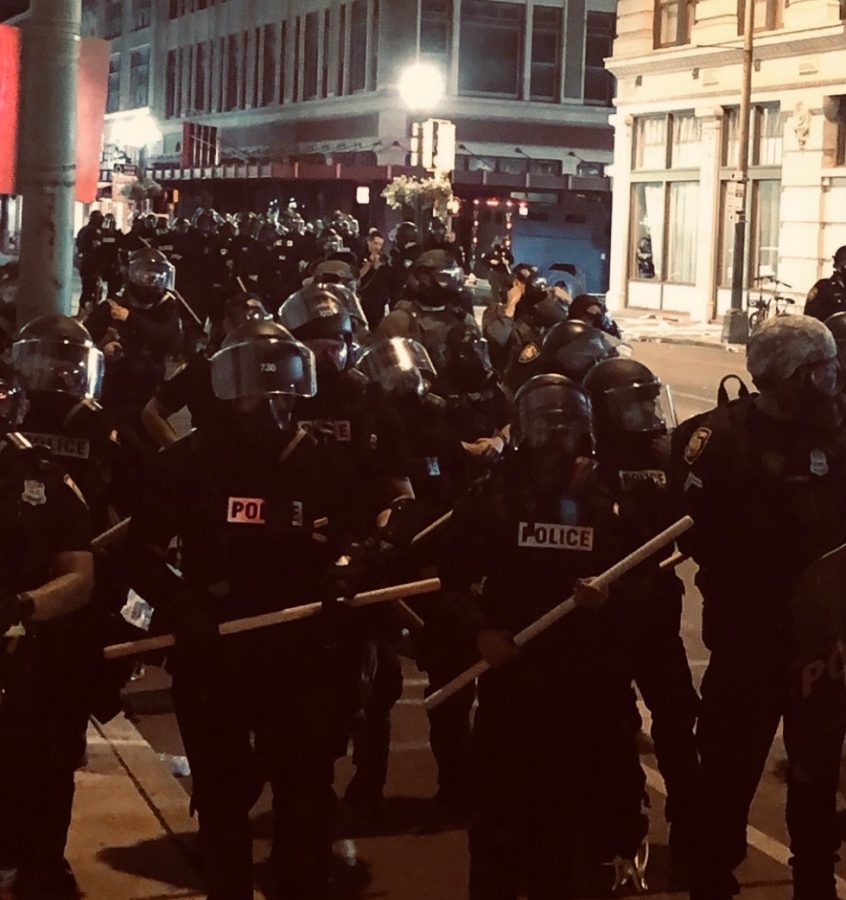San Antonio must address its own police department’s malfeasance
Photo by Jake Striebeck
April 23, 2021
When I received the news notification that Derek Chauvin, the police officer who killed George Floyd, was guilty, I was dubious. I think that says a lot about my faith in the justice system’s ability to provide impartial and fair decisions. Nevertheless, amidst a cocktail of exuberance, zeal and denial, I came to a conclusion that I am sure most have come to; this was a small step in the larger push for racial justice in the United States. While the country is taking strides, albeit small ones, what is San Antonio doing to reckon with its own police department’s malfeasance and to uplift the diverse demographics within the city?
If we look at city officials, it’s a contradicting bag. San Antonio Mayor Ron Nirenberg alluded me when he praised police accountability in a news statement on the Chauvin verdict. “Justice was served by the jury’s decision, and the verdict properly holds Derek Chauvin accountable for his actions,” Nirenberg said. At the same time, Nirenberg is against Proposition B, a ballot measure that calls for the repeal of Chapter 174, which allows police unions to bargain collectively. Collective bargaining allows a union to determine wages, hours for those they represent. The premise of the proposition is based on poor contracts leading to poor performance.
More empirical evidence reveals the questions left unanswered and the work that the city still needs to do. Marquise Jones, a Black man killed by a San Antonio police officer, was not represented to a grand jury, the police officer who killed Charles “CHOP” Roundtree, an unarmed teen, was acquitted and Darrel Zemault Sr., another black man, killed by a San Antonio officer, received delayed medical care upon being shot.
In another regard, San Antonio is the most economically segregated city in the United States with a high homeless population. Empirically, the city has displaced the homeless population, moving them from gathering areas and not providing ample resources and alternatives. Furthermore, board members of CPS energy, who Mayor Ron appoints, have not made commitments to close down the Spruce Power Plants. The pollution caused by the plant impacts lower-income neighborhoods the most and disproportionately affects black and brown communities.
Because San Antonio is a growing and developing city, the consequences of gentrification plague several lower-income communities. Looking more closely, the East and West Side are becoming more inaccessible and alienating the LatinX community that previously occupied the area. In 2019, the East Side was one of the fastest gentrifying neighborhoods in American and experienced a 78.5% increase in the median sale price of homes and an 8.8% increase in the median household income. The city has made efforts to help displaced residents and ignored travel expenses that were not considered in their previous residence.
It’s clear San Antonio still has a long way to go to remedy its intersectional defects, but I suppose the lingering question is, will elected officials take the initiative to create lasting change?







